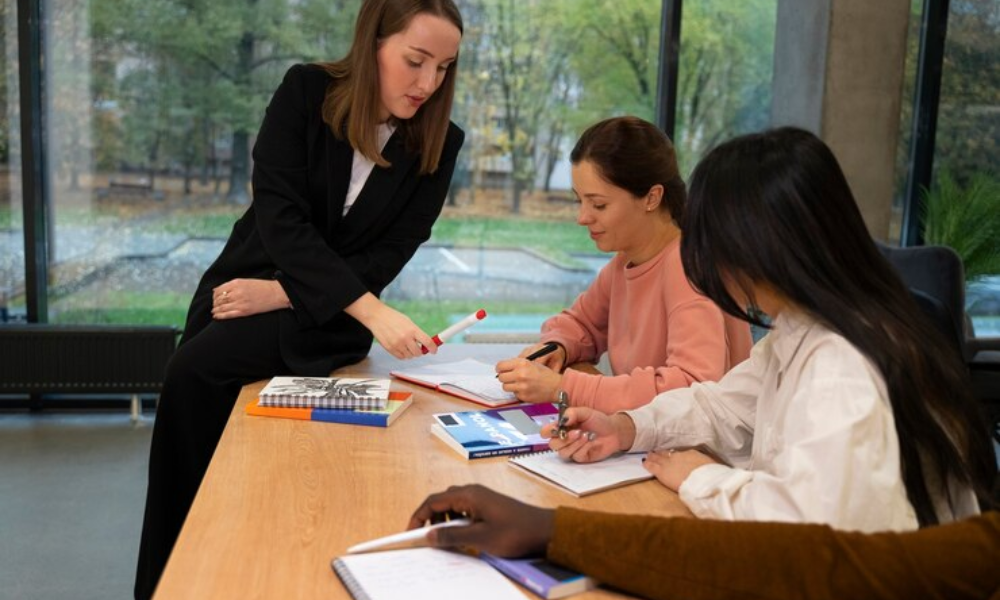Empowerment of Women is essential for creating a balanced and progressive society. Education plays a pivotal role in this process by providing women with the knowledge, skills, and confidence needed to shape their futures. This article explores the impact of education on women’s empowerment, drawing insights from key sources and emphasizing the significance of secondary education and overall empowerment.
The Importance of Education in the Empowerment of Women

Education is a powerful tool that significantly enhances the Empowerment of Women. It provides women with the opportunity to gain knowledge, develop critical thinking, and build the confidence needed to participate actively in society.
Key Benefits of Educating Women
Economic Independence: Education enables women to secure better jobs, leading to financial independence and stability. Studies have shown that women with education are more likely to find employment, earn higher wages, and contribute to their family’s income, reducing poverty levels.
Health Benefits: Educated women are more likely to make informed health decisions, resulting in better health outcomes for themselves and their families. They are more likely to seek medical care, practice family planning, and understand the importance of nutrition and hygiene.
Social Empowerment: Education fosters a sense of self-worth and the ability to influence social change, challenging traditional gender norms. Educated women are more likely to participate in community activities, voice their opinions, and take on leadership roles.
Impact of Secondary Education

Secondary education is a critical stage that can shape the future of young women, providing them with essential skills and knowledge.
Key Impacts of Secondary Education on Women
Delayed Marriages: Girls who receive secondary education are less likely to marry early, reducing the risks associated with early pregnancies and childbirth. This delay allows girls to mature, gain more knowledge, and make better life choices.
Enhanced Career Opportunities: Secondary education opens doors to higher education and better employment opportunities, enabling women to pursue professional careers. This leads to greater job satisfaction, financial security, and career advancement.
Increased Civic Participation: Educated women are more likely to engage in civic activities and take on leadership roles within their communities. This participation helps women influence policy decisions and advocate for gender equality.
Empowerment Through Skill Development

Education goes beyond academics; it includes the development of practical skills that empower women to become self-reliant and entrepreneurial.
Vocational Training and Entrepreneurship
Skill Development Programs: Vocational training programs equip women with specific skills, making them more competitive in the job market. These programs often focus on trades and professions where women are underrepresented, such as technology, engineering, and business management.
Entrepreneurship Opportunities: Education encourages entrepreneurial thinking, enabling women to start their own businesses and contribute to economic growth. Women entrepreneurs create jobs, foster innovation, and drive economic development in their communities.
Addressing Barriers to Women’s Education

Despite the clear benefits of education, many women and girls face significant barriers that prevent them from accessing education.
H3: Common Barriers and Solutions
Financial Constraints: Poverty is a major barrier; providing scholarships and financial aid can help mitigate this issue. Governments and NGOs can establish funding programs to support girls’ education, covering tuition fees, books, and other necessary supplies.
Cultural Norms: In some cultures, traditional gender roles limit educational opportunities for girls. Community awareness programs can challenge and change these norms. Engaging community leaders, parents, and teachers in promoting the value of girls’ education can help shift cultural attitudes.
Safety Concerns: Ensuring safe transportation and secure school environments can help encourage more girls to attend school. Implementing measures such as safe routes, school buses, and anti-harassment policies can make schools more accessible and safer for girls.
Case Studies and Real-Life Examples

Marie: Overcoming Barriers in South Sudan
Marie, a young girl from South Sudan, is determined to complete her secondary education despite numerous challenges. With the support of her community and organizations like World Vision, she is breaking through traditional barriers and setting an example for other girls. Her story highlights the importance of community support and the impact of educational programs on individual lives.
Tabitha: Baking for Empowerment in Lesotho
Tabitha, a member of a local bakery in Lesotho, has utilized her baking skills to create employment opportunities for herself and other women in her community. Supported by vocational training and resources, she has transformed her life and those around her. Tabitha’s success story illustrates the potential of vocational training programs to empower women economically and socially.
The Role of Organizations in the Empowerment of Women

Organizations play a vital role in supporting women’s education and empowerment. They provide resources, training, and advocacy to create a more equitable society.
World Vision’s Initiatives
World Vision has numerous programs aimed at empowering women and girls through education. These initiatives include building schools, providing scholarships, and promoting gender equality within communities. World Vision’s comprehensive approach addresses multiple barriers to education and creates supportive environments for girls and women.
Conclusion
Empowerment of Women through education is not just a moral imperative; it is essential for the development and progress of societies. By addressing barriers and providing opportunities for education and skill development, we can ensure that women are equipped to contribute meaningfully to their communities and the world at large. The collective efforts of individuals, communities, orga









